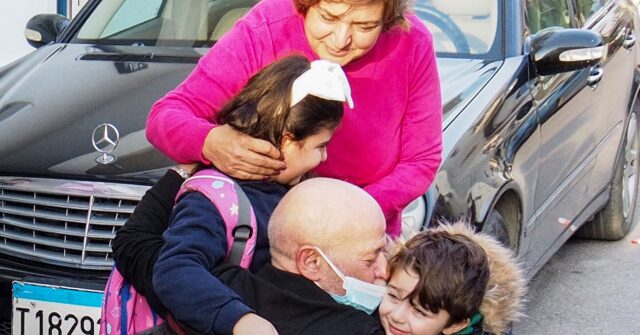In Lebanon, the recent release of several prisoners who were abducted by the Syrian regime over the years has sparked celebration among the Christian community. This unexpected turn of events followed the sudden collapse of the Assad regime on a Sunday, which marked a significant shift in the political landscape of the region. Among those freed is Souheil Hamawi, a Lebanese national who spent 33 years in Syrian prisons before returning to his home in North Lebanon. His story of endurance and longing for family resonated deeply within the community, as he recalled being taken from his home in Chekka when his son was just an infant. After years of uncertainty, he was able to finally reunite with his family, including a now-adult son and grandchildren, highlighting both the personal toll of political strife and the joy of reunion after long separation.
Reports of other Lebanese detainees being released have emerged, with only one other case currently confirmed—Ali Hassan al-Ali from Akkar, who was recently freed from Hama prison but has not yet returned to Lebanon. The plight of these prisoners sheds light on the broader issue of missing individuals in Lebanon, many of whom were political activists or members of Christian militias involved in the country’s tumultuous civil wars during the 20th century. The historical context of Syrian occupation and its infiltration into Lebanese society raises questions about justice and reconciliation. While the release of prisoners is a cause for celebration, it is also a moment for reflection on the myriad of individuals still unaccounted for and the families left in despair over their absence.
The ongoing power dynamics in the region add complexity to the situation. While Syria had dominated Lebanon for decades, its influence waned as Iran and its proxy Hezbollah took the forefront in political matters. The recent events have sparked mixed reactions among social media users, with some expressing outrage towards former Lebanese President Michel Aoun for trusting Assad’s claims regarding Lebanese prisoners. In contrast, others commend Israeli Prime Minister Benjamin Netanyahu for the strategic outcomes of the conflict involving Iranian-backed groups like Hamas and Hezbollah. The discussions on social platforms illustrate the intricate web of alliances and enmities that characterize Middle Eastern politics, where every decision can have far-reaching implications.
Despite the joy surrounding the end of Assad’s rule, concerns linger about the fate of Christians in Syria, particularly as extremist elements have emerged among the Syrian rebels. The radical Islamists that played a role in overthrowing the Assad regime evoke anxiety within Christian communities, as the power vacuum created by the regime’s collapse may lead to violence and persecution. The overarching narrative of liberation can thus be tempered by the fear that the very groups who opposed Assad may pose a new threat to the religious minorities in Syria, making the situation for Christians precarious.
As the region grapples with the aftermath of Assad’s regime, it’s crucial to consider the broader implications for governance and civil society in Lebanon and Syria. The geopolitical landscape remains fraught, with the potential for instability as power shifts hands. Observers point to the Iranian strategy of encircling Israel with a network of proxies—an approach that has seen significant setbacks following the recent clashes instigated by Hamas. The reaction to these developments reveals a profound re-evaluation of regional alliances and the enduring conflicts that persist despite the apparent victories.
In summary, while the release of Lebanese prisoners from Syrian jails marks a moment of hope for families and communities, it also encapsulates a more complex narrative of lingering challenges. The interplay of local and regional politics continues to shape the lives of individuals in Lebanon and Syria in fundamental ways. The celebration of freedom for some intertwines with the stark reality faced by many others still missing or at risk, amidst a regional landscape characterized by shifting loyalties, historical grievances, and an uncertain future for minorities such as Christians in Syria.

